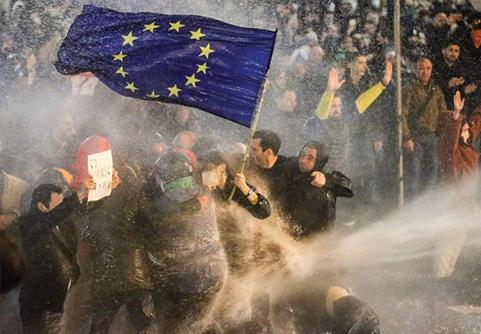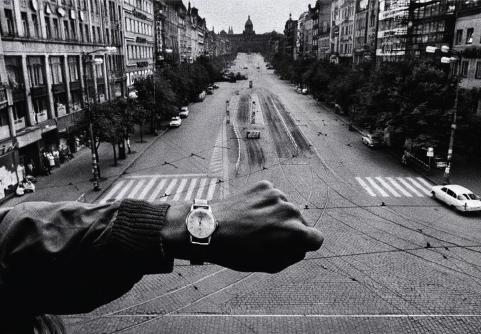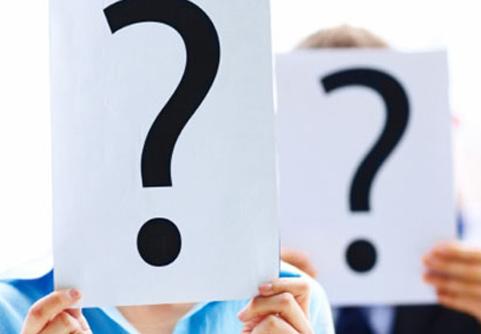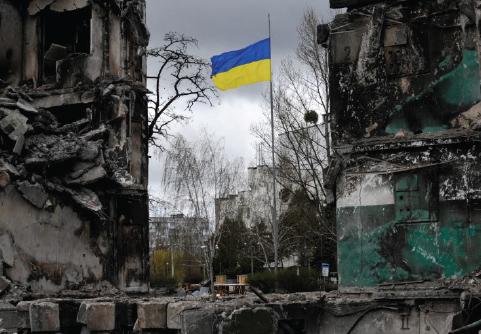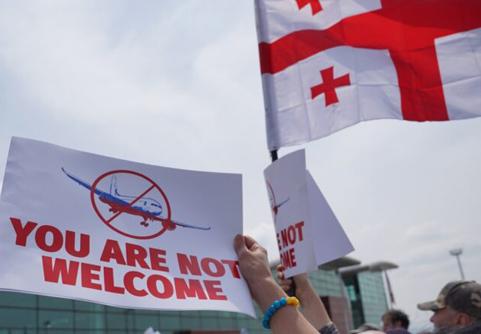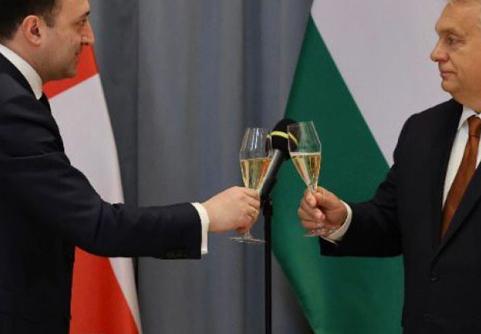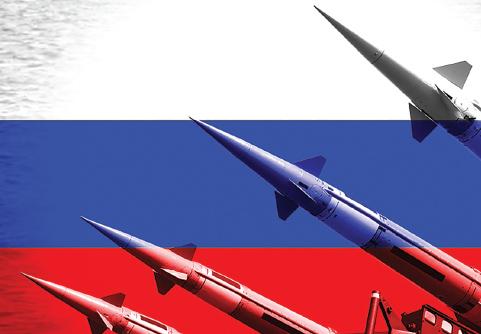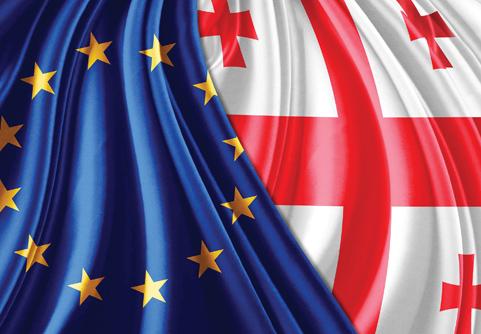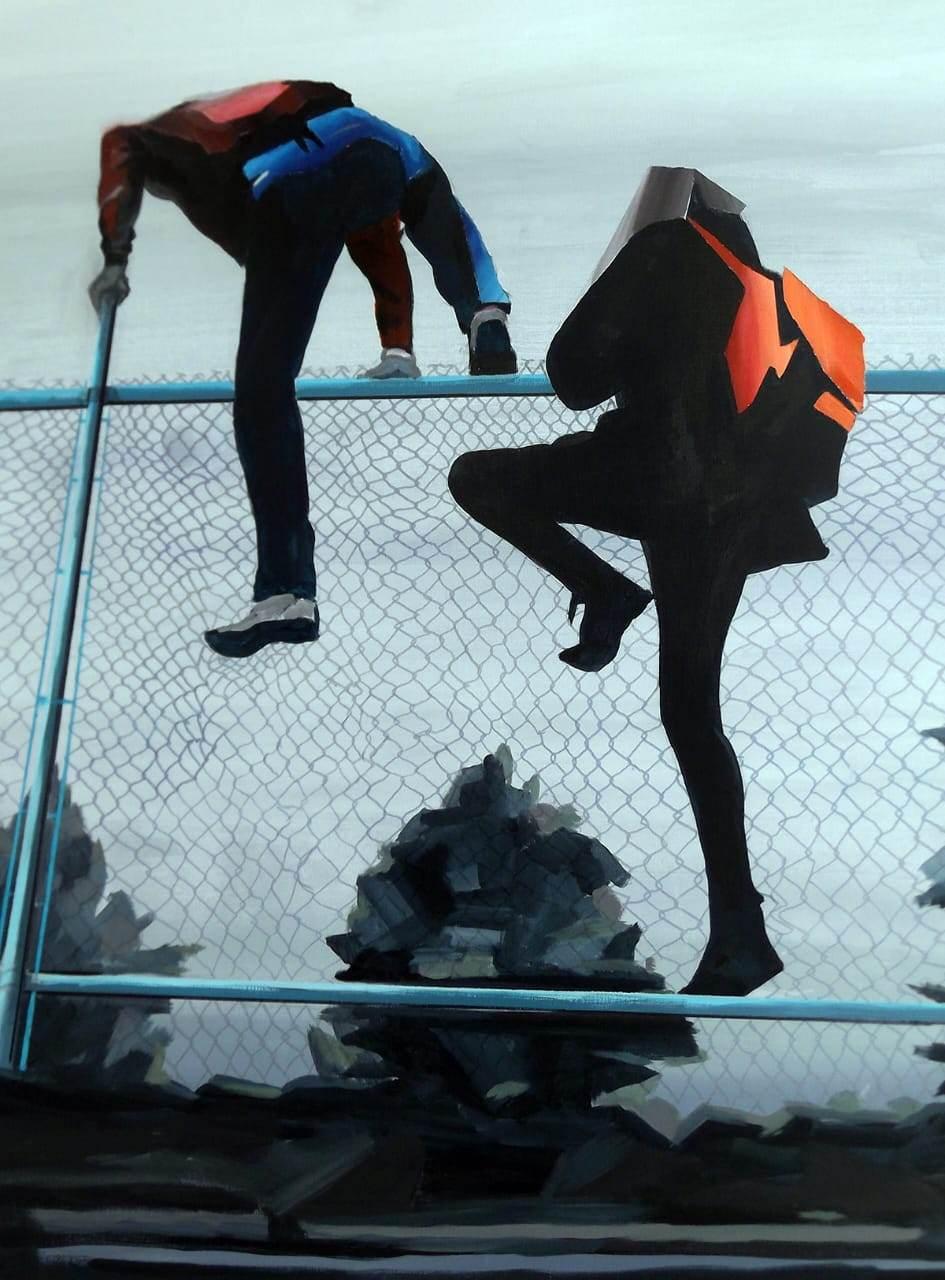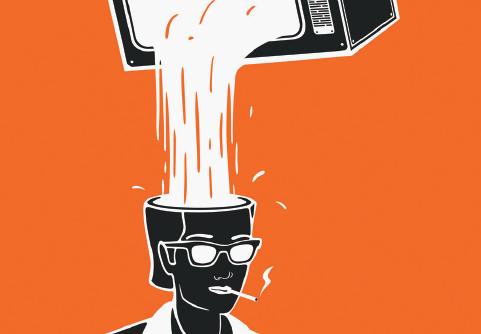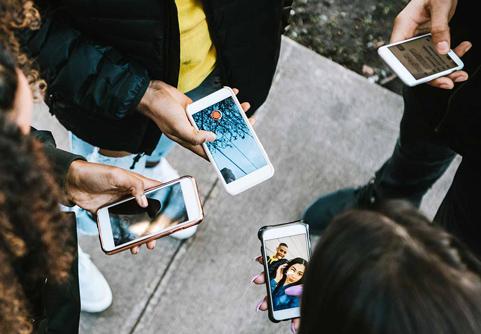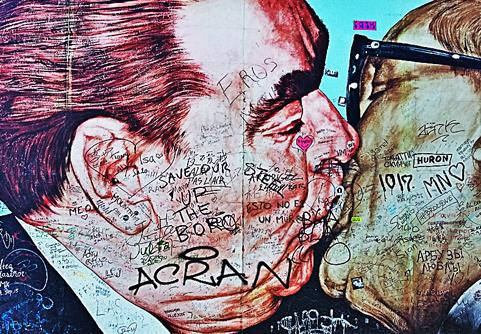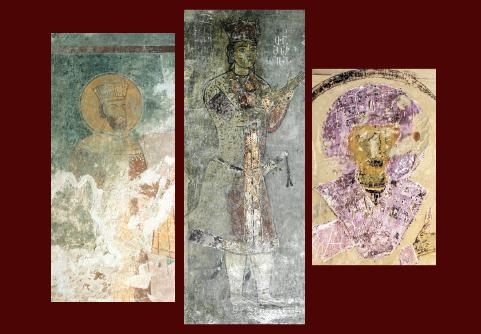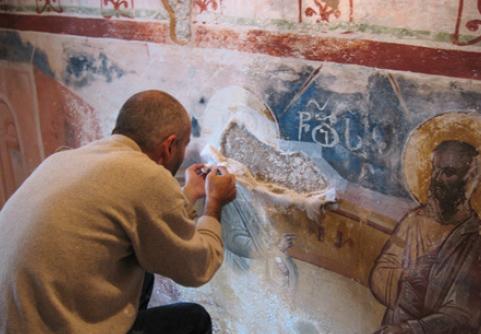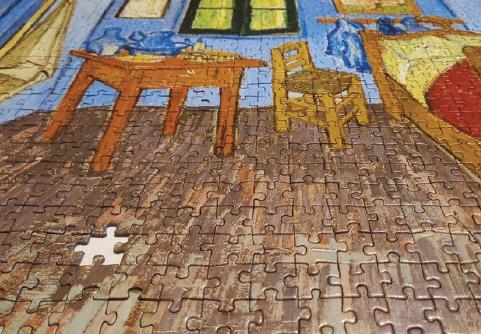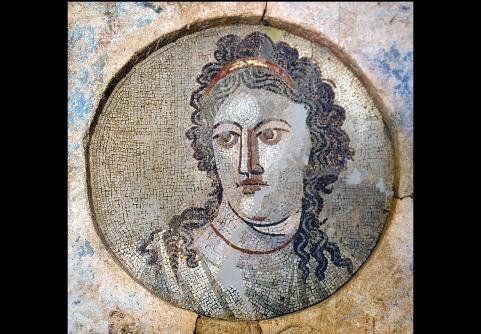
Author : Andro Barnovi
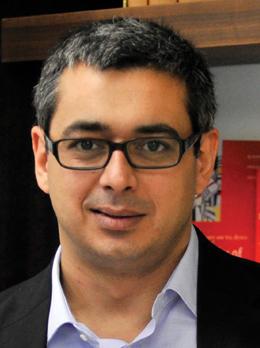
Below we will discuss collective memory and national identity, i.e. we must consider an exceptionally large topic in a very small format, and therefore we cannot avoid significant simplifications. I apologise in advance to the readers for this, but it seems to me that it is still necessary to write on this topic and in this format. We, that is, the people who feel responsible for the country’s tomorrow, need not only competence, but first we need to agree on a big vision of the country’s path. That means we need to start thinking about the most profound problems. What kind of army, economy, education, and health-care systems do we require? These are important questions, but first we must determine how our society can become consistent in solving and realising the big tasks. That is, we must first answer the big questions that have a devastating effect on the effectiveness of our state as a single organism.
* * *
Rarely in any society can you see so many sharp confrontations over seemingly clear and simple issues as in Georgia. Sometimes it seems that we simply cannot agree. We argue about everything, even show hostility. We tell history in different ways, perceive the present from different poles and imagine the future going in radically different directions. It is as if this country is not our common land, as if we live in different countries and someone has forcibly brought us together to demonstrate our intolerance of each other. We remember all the moments from the first moment of independence in different ways. Each of us has our own truth and we live to this day, benchmarking these truths.
That is why it is popular for all sides to complain about the lack of a national memory. It is logical – after all, someone has to be “more right” in this dispute. In short, we want to find out exactly this truth:
Who is right? Is anyone right?
A national memory implies a collective memory, and although its destruction leads to a plethora of personal conflicts, a reasonable observer realises from the outset that the problem is not an individual person. It is a deep social problem, and if we want to cure it, it is essential to find its roots.
This is a fact – collective memory has turned out to be a big problem for independent Georgia as we simply do not have it. The good memory of individuals in no way solves this problem. Not only is it meaningless for society, but it can often be taken out of context and create additional tensions in society, because a collective memory is not an objective. A collective memory expresses a kind of collective agreement on the rules for perceiving the past: It is a shared tool of the collective for perceiving the past and a trigger for the decisions and actions of that community.
There is no formed society that does not have common interests, a common perception of the past or the present. For example, you will not find a Georgian for whom Genghis Khan is a hero, just as you will not find a Mongol for whom Genghis Khan is not a hero. This seemingly obvious fact will not be so simple when we remember that Stalin is a hero for some Georgians and a criminal for others, Putin is an influential politician for some and a murderer and a criminal for others. Why is it that we agree on Genghis Khan, but not on Stalin and Putin? Why is Russia for some Georgians an occupier and an enemy, while for others it is of a single-faith and a fraternal nation?
How is it that part of our population reacts sharply to the words of the government, “Georgia started a war”, and another part nods and applauds in agreement? Why is it that some of us are ardent Westerners and some of us are nostalgic for the occupying Russia? What and how has divided us to such an extent that we cannot even agree on the most important, fundamental issues. Whichever side you are on, such a radical division of the society is a problem for everyone.
There are many interesting studies in psychology on collective memory. Since this is a journalistic article and not an academic study, I will outline in general terms what these studies have revealed. Firstly, there is the flexibility of human memory arising from its imperfection. The imperfection of human memory is an advantage of collective memory because the reconstructive nature of memory is thought to give the group greater cognitive flexibility. On the other hand, this reconstructive nature is directly dependent on the personality of the memory bearers. Simply put, people often forget things that contradict their personality and then, due to the reconstructive nature of memory, reconstruct reality according to their own rules, even though this reality may not exactly match the truth.
The more similar the identities of the members of society are, the more similar they reconstruct the past, and these are the building blocks of the social identity of society. It is therefore easy to understand what happens when the identities of the members of society and the rules for perceiving reality are radically different. They reconstruct the past differently: Truth for one person is false for another, and vice versa.
Thus, the collective memory is damaged, which, to reiterate, is rooted in the problem of a people’s identity (or lack thereof).
Not to fall into the trap of theoretical reasoning, let us look at how successful societies behave. There are many possible ways of illustration, but here we have decided to look into the deep (but well-known) past and consider the society of the ancient Greeks, an important part of their thought structure. In general, when we want to delve into one or another aspect of social consciousness, mythology dictates interesting constructs. Myth is interesting because it is not a theoretical speculation, but, like Uranus (Heaven) and Gaea (Earth), one of the twelve Titans. In addition to the Titans, science is a type of knowledge tested over centuries that tells us many interesting things about the society that is its bearer. Ancient Greek society is one of the best and most well-researched examples of a successful society. Even if not, similar constructs work in human societies, so, from a certain point of view, myth is also a description of a universal law...... In Greek mythology, Mnemosyne is the goddess of memory, occupying a special place in the pantheon. Consider for yourself that she is the daughter of Hecatoncheirons (horrifying monsters) and the Cyclopes are her siblings. Kronos, the supreme ruler of the ancient world, is her brother. Many scholars today still wonder why the Greeks placed Mnemosyne in such, almost primordial, chaos, although the answer to this question will appear below.
The Titans are ancient gods who were captured by Kronos’s son Zeus and banished to Tartarus. Not only did the beautiful Mnemosyne escape the wrath of Zeus, but she remained a highly respected goddess, which is understandable from the point of view of the story: Mnemosyne, having entered into a relationship with Zeus, brought the Nine Muses into the world! Yes, all nine Muses are the children of Mnemosyne. Even many scholars believe that the Muses rule the various branches of the arts, but this is not the case. In fact, the Muses oversee various aspects of the sacred rituals (collective knowledge) to keep the connection between the gods and humans unbreakable. Here, art does not exist independently of the gods, the artistic branches at that time (and perhaps even now) have no independent value. Their function is to glorify the gods, and this is why the Muses sometimes visit humans to help them serve the gods better. And this will only be possible if humans remember the wisdom already given to them by the gods. Muses are actually sectoral incarnations of Mnemosyne. It is through them that people share collective knowledge, remember, recall, and are reminded.
Why are the Muses the children of Mnemosyne (memory) in particular? There are two possible explanations.
One is a technical explanation: In the oral tradition, memory had special importance. In the absence of writing, only memory can record and transmit knowledge.
But again, any writing is in the service of memory, and so when we speak of the importance of Mnemosyne, it is not primarily to acknowledge the memory skills of an individual, but to acknowledge the importance of collective memory. It is therefore not surprising that Mnemosyne remained exceedingly popular in Greece even after the introduction of writing. Homer’s poems begin with a mention of the Muses, and Mnemosyne is constantly called upon by the heroes to testify to the truth of a word or deed, almost as we say today, “According to the Constitution”. In a sense, then, Mnemosyne acts as a precedent order in this society, ensuring the stability and permanence of the Hellenic way of life. As Hesiod explains, politicians (kings) and poets literally drew inspiration for their inspirational performances from Mnemosyne and the Muses.
That is by no means all.
For the Greeks, collective memory is a phenomenon with magical powers, a necessary condition for social life. Judge for yourself: Mnemosyne is the patron of one of the rivers that flow into Hades, like Lethe. If Lethe is the source of oblivion, Mnemosyne is the source of memory. If the dead drink the water of Lethe, the initiated must drink the water of Mnemosyne. Translated into our language, this means that the ancient Greeks regarded memory as a necessary condition of social life.
As we can see, Mnemosyne quite logically occupies such a prominent place in the Greek pantheon. She appears with the first gods, and it is she who creates society’s view of everything – be it the creation of the world, the rules of social relations or any relations between the parts of this social order! Mnemosyne creates language. She makes up all the words, all the rituals and all the myths. If the Greeks knew anything about the world and about themselves, it was because of Mnemosyne.
What is a Hellene? – Only Mnemosyne could answer this question. How do the Greeks see the world? – By and large, only Mnemosyne knows this. Collective memory is a kind of mega-ritual, since Mnemosyne contains all mythology, that is, Mnemosyne is the entire world seen through Hellenic eyes. Consequently, collective memory and collective identity for the ancient Greeks are synonymous concepts. However, Mnemosyne, as the source of immortality, not only creates identity, but is a necessary condition for the existence and immortality of this society itself. She is the progenitor of names, the author and preserver of language and of all traditions. Mnemosyne, or collective memory, is itself the self-perception and worldview of the society, or collective identity.
But this was not only so for the ancient Greeks. Collective memory is the identity shaper of any society. Without it, there is neither a cohesive society nor an established nation.
* * *
As a rule, individuals have a tendency towards conformism, including cognitive conformism. Therefore, members of a society shape their memories not only through their individual experiences but also through their shared experiences, specifically through the narratives they share with each other. Everyone in a society is a narrator, although there is a functional hierarchy of narrators and they have a decisive influence in shaping the identity of that society. What we say, how we say it, how we perceive it, and how we remember it are crucial processes for identity.
It exists the concept of the dominant narrator, which means both the authoritative narrator and the one who most often shares stories with the members of the community. Dominant narrators play a crucial role in the process of collective memory formation. In ancient Greece these were singers, minstrels, and basileis, while with us they are politicians, journalists, and artists, as well as various popular “influencers” – the gift of the new world. They all have a decisive influence in the process of shaping the identity of a society.
We often blame history for the division of society – for example, conquests, the colonial past, or low levels of education – but this is only partially right. If a society’s history is not constantly disrupted by radically different narratives, an effective collective memory can be formed quickly.
The fact that none of our governments could not or have not fully recognised the problem of “narrators” is having a devastating effect on Georgian society. The fact that everyone is trying to control the media is just an ugly understanding of the problem. Technically, the enemy understands this problem better than anyone else, and that is why the collaborationist government is rigorously following instructions to zombify the public.
Their technical competence is not suitable for us because their goals are radically different from ours. So, what destroys us is not that we must fight an unequal struggle for independence, but that we do not fight for independence at all. Or we fight occasionally, but always incompetently.
Let us take a look at how the collaborationist authorities are changing the identity of society: In a country where anti-Western rhetoric was completely unthinkable, the enemy of our nation, first by funding a large army of nameless trolls and bots, then by various propaganda or manipulation methods, and now by statements from the authorities, has gradually created a crack that has already turned into an abyss. We are witnessing with our own eyes a well-planned and executed special operation by the competent services aimed at destroying the nation. First they kill the cognitive coherence of society, then they create an army of zombies, then they become the leaders of this army, and as of today they are only one step away from open, mass violence, when islands of national spirit are destroyed by fire and sword in order to turn the entire society into tools of the enemy’s narrative.
As for the past, it really destroys us. More precisely, what prevents us from living is the fact that we already “died” in the past and we do not remember it, cannot perceive it. The mental integrity of Georgia has been destroyed and the nation has nothing more than a cognitive unity of society. From this point of view, the Georgian nation as a single organism has been completely destroyed.
The Jews, and to no small extent the Ukrainians, began their revival by reviving their language. They snatched the vanished language out of oblivion, they reversed the waters of Lethe and drank Mnemosyne. They called upon Mnemosyne and began to create new names. And then they began to speak in that language and resurrected.
Some will say that we are not in such a difficult position, we have a language, and we are called a nation, but this is not true. We are in a worse position because we are not aware of the destruction of our bodies, the confusion of our minds, and the severing of a nation from its roots. We admire ourselves like a rootless tree until the first strong wind, we sit like zombies at a set table and only care about who drinks the most. We don’t even want to be held accountable for the food on the table. Otherwise, we would know where it comes from, will come from, and is best earned. But no – we are choosing the easy meal, and if this continues to go on this way, our country will soon become the most successful example of a Russian fake – as it really was within the Soviet empire.
If the Jews or Ukrainians had not realised they were dying, they would not have tried to revive themselves with such energy. And we bury murderers and bandits in the pantheon with the same honours as our sacrificed compatriots... Where did Mnemosyne go? Where has she gone?! Her enemies buried her with the dead! And every time they bury her with the new dead, they put another symbol of national identity into the ground.
A nation whose dominant narrators hide the truth from it cannot revive. We must remember that the authority of the storyteller and the intensity of the narrative is crucial here, which, among many other factors, points to the role of politicians, artists, athletes, media, and any other “agents of influence”. “Art and politics are different things”, “Don’t mix sport with politics”, and similar messages are formulas written right in the Kremlin and aimed at splitting the nation’s cognitive unity. Aimed and achieved! And one must somehow have enough intelligence to see this process clearly, on the one hand, and on the other hand, to be able to bring the truth to the masses.
We must turn on the artificial respiration and point megaphones towards people’s ears. We must make it clear to everyone that our national identity is being savagely destroyed by the enemy, that this is everyone’s problem, and we must become a kind of Prometheus who not only foresees the future but brings fire from heaven and shows people the way to that future.
We may not be revived all at once. But if we look at recent history, we will see that miracles defy time. A single impulse is enough to set off a chain reaction that brings life to all parts of the body as quickly as possible.
The key to such a revival is dominant narrators, storytellers united by a common idea, while shared values are a necessary condition for the life of a nation. Any such focal point that brings these people together will be inscribed in golden letters in the nation’s memory. As this is my first article in New Iveria, I would like to welcome this wonderful initiative and hope that it will become one of these crucial centres that will speak its weighty word in the revival or awakening of the nation.
